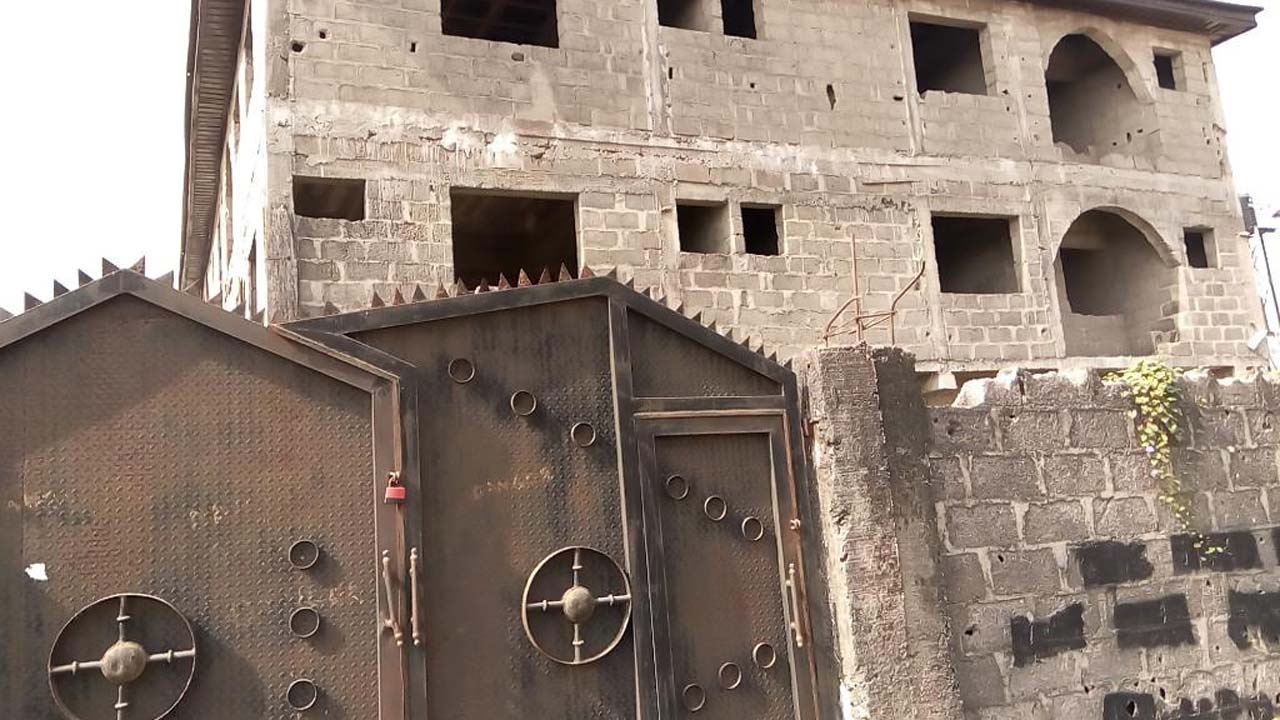
Due to the harsh economic situation in the country, many residents in urban Lagos are adopting new measures to solve the challenge of paying rents.
Grappling with the stark realities of the economic recession in the country and its attendant effects on rents, many residents in Lagos and its environs have been forced to move into their houses without completion.
There are also several cases of illegal occupants, who saw uncompleted buildings as succour for their housing needs. Housing has remained a major challenge in the mega-city as residents who cannot afford decent homes, stay in houses that has structural defects, sewage challenges, congestion, lack of ventilation among others.
The true scale of the housing deficit challenge can be gleaned from the fact that it is estimated that about 108 million Nigerians are homeless based on an average family of six people per housing unit.
In several parts of Lagos for instance, residents who cannot afford the high cost of apartments in the highbrow areas, move to the outskirts to rent apartments, which usually lack basic amenities.
These buildings, which are often in their uncompleted stages, are doted in several estates, shanties and other dirty environment in border towns. Ideally, people should not be living in such conditions, but in Lagos, it doesn’t matter because it is the survival of the fittest. The situation is worsened by the present economic realities, which led to 70 percent devaluation of Naira.
According to Sola Enitan, an Estate Surveyor and Valuer and the Country Leader at Cromwell Professional Services International and Urban Development, there is no how anybody would continue to pay rents when he has an uncompleted building he could live in.
The situation, he said is further compounded when landlords are increasing rents in order to maximize their investments with the depreciating value of the Naira.
He stressed that the phenomenon could be traceable to the economic situation where the value of Naira is continuously depreciating. He said: “ Nobody can fault this phenomenon because naira has lost about 70 percent of its value and nobody in his right sense who has an uncompleted building will like to go to pay rents”.
Enitan, however said, the phenomenon was not really new, because in the late 70s and 80s many houses were built by Nigerians within 10-25 years with their salaries and cooperative returns.
“It is not a new trend because then people builds from inside one room until the houses are completed as the families increase. “For instance, in Ilupeju, most of the houses built by retirees of the Nigerian Railway Corporation were buildings from one room till the families expanded”, he said.
Apart from that, the urban development expert said the phenomenon could be linked to the clampdown on corruption by the present administration, which has reduced the income of majority of Nigerians who feed on corruption proceeds.
Also the former chairman of Lagos branch of Nigeria Institution of Estate Surveyors and Valuers (NIESV), Olusola Fatoki observed that people moved to uncompleted buildings because the economy has not favoured them adding that the scenario has now become a reality everywhere in Nigeria.
According to him, apart from few buildings owned by people who allegedly stole money, some people who want to build a block of two-flats, only succeeded in building one-flat, without even completing it, they start living there. Fatoki stressed that apart from health hazards , living in such buildings also has some social implications.
According to him, there was a case of a person who lived in an uncompleted building and has been in and out of the hospital till date because he was a victim of armed robbers’ attack.
He disclosed that according to the United Nations, a house must have five basic amenities and once those things are not there people are bound to be expose to social risks.
Another expert and Vice Chairman of the Lagos State branch of NIESV, Olurogba Orimalade said most people live in uncompleted buildings because they want to run away from paying house rents.
In most scenario, the buildings are occupied by people who don’t have any means of survival. Orimalade explained that if government do not act promptly, areas where such buildings are located could serve as a flash points for drug peddlers and criminals.
Also the Chairman of the Magodo Residents Development Association (MRDA), Mr. Kunle Eludire told The Guardian that illegal occupants of uncompleted buildings was one issue they don’t take lightly in Magodo, because they are considered as security risk.
Apart from the security implications, he said, it was not even habitable to live in uncompleted buildings because there they lack functional toilet and water, which can even constitute environmental hazards that could lead to epidemics.
According to him, some landlords, who are yet to complete their houses put security men, whom they called Maiguards, they in turn bring in their friends and relatives to the property. He said the association in realization of such development; still carry out a check on them.
“We tell them, we want to know them by registering them and will not tolerate them taking another relations to the property. We go further to ask them to bring letters from the landlords and we don’t expect to see them working at the site by seven O’clock in the night. Our security men usually visit the sites to make sure there is nobody, if we found any; we took them to the police station, where they write undertakings.
It is not even habitable to sleep in the site because there is no toilet and waters and it even constitutes environmental hazards and can lead to epidemics”. he said.






